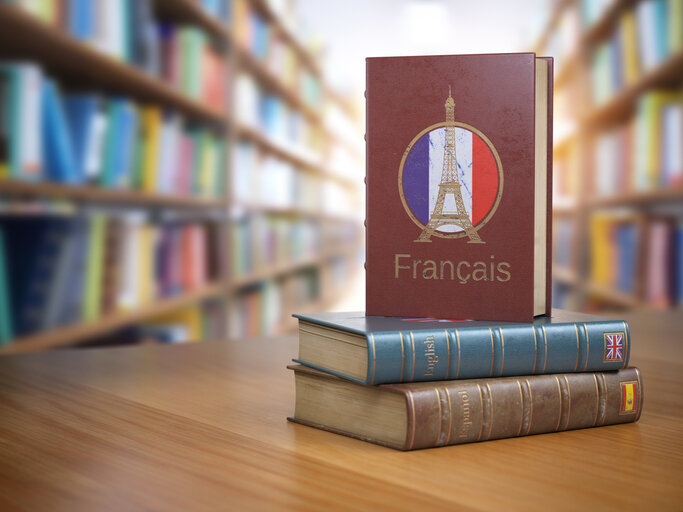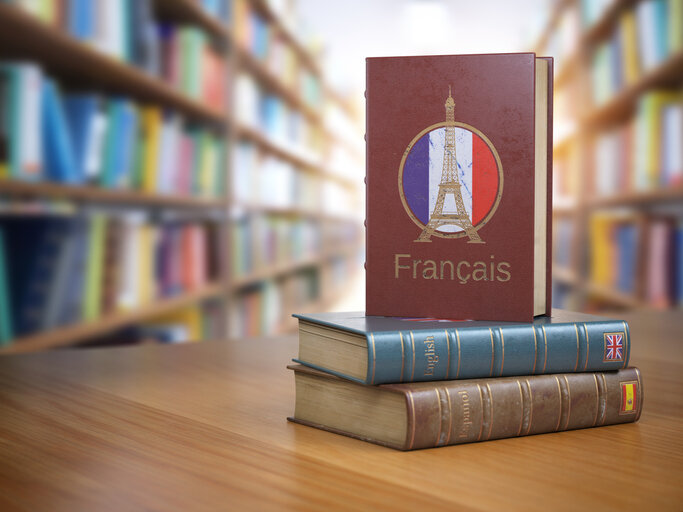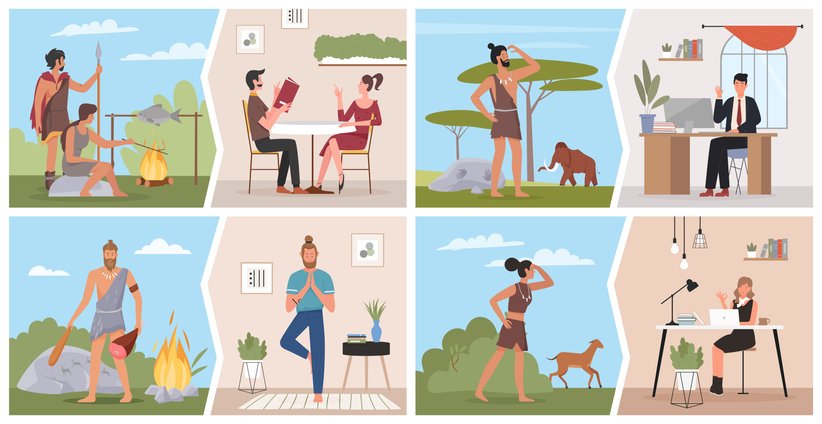Literature is a medium that we can use for the acquisition of intercultural competences in learning a foreign language.
When we study a new language, beyond learning endless vocabulary and grammatical rules, we also implicitly study the culture where that language is spoken or practiced. It is an experience that allows us to know the language, ideas, traditions, and customs that characterize a people or nation. Identifying similarities and differences with our own culture is part of the experience of learning a new language. In this sense, literature is a way of knowing the cultural characteristics about where the plot of a book takes place, but what would happen if, in addition to studying the themes presented in a book, we could share with the author reflections, doubts, and concerns about his work? In this article, I share my experience.
Acquiring intercultural skills in learning a foreign language is essential to achieve correct communication in the context where the language studied is spoken. Literature is a means that we can use for the acquisition of these competencies. On the one hand, it is an authentic document; that is, it was created and intended for natives of the language. In the classroom, the teacher can use it for class activities so that students access the idiom as it is actually used. On the other hand, the literary text and its reading are a way of knowing the cultural aspects derived from the themes addressed in work at the same time that the language is studied and practiced.
“The fact that students can exchange their views with the author of the work in a video conference allows students to understand and appreciate reading in a different way.”
For an apprentice of a foreign language, the purpose of literature is not the analysis of the work but its understanding in the first degree: to understand the plot, the theme, and the characters. In my teaching practice, I like to integrate this activity with study sheets. These are questions prepared in advance to accompany each chapter, arranged in such a way as to summarize the plot, identify the characteristics of the characters, and open the debate in class about the themes covered. Study sheets are used to capture ideas that are shared orally in class with the whole group. I like to choose books that complement the curriculum; for example, the novel Dévorés by Charles-Étienne Ferland allows us to immerse ourselves in social organization, food resources, and the environment. Bookstore of the Insomniacs by Lyne Gareau leads to the exchange of ideas about the environment, friendship, and technology, and with Soleil by David Bouchet, we can chat about migration, family, health and customs.
Le Centre de la francophonie des Amériques (The Center for the French-speaking in the Americas) has a program called Les Rendez-vous littéraires (The Literary Rendezvous). This program aims to raise awareness of the richness of French culture in the American continents. Last year, around 20 different literary works were proposed, like those mentioned above. The program is aimed at middle school students onward. “Les Rendez-vous littéraires” takes advantage of technological tools since everything is developed online. The Francophonie Center acquires the licenses of the digital-book so that the teacher can use it in class study. The suggested time to study literary work in the class is for two months.
Once the study of the work is concluded, we have a video conference with the author of the book. In this session, the students have the opportunity to ask questions about the book read and other issues that offer the student some different viewpoints on the themes studied in class. The quality of the students’ questions demonstrates their learning of the language and knowledge of the work. It is a very enriching session because, also, the author shares with the students his creative process and opens time for dialogue with the group. Being able to talk about specific points with the author permits the students to understand and appreciate their reading in a different way.
Questions asked by the students to the authors at the video conferences:
Charles-Étienne Ferland
-
D’où vient l’inspiration pour écrire ce livre? Translation: Where did the inspiration for the plot of this work come from?
-
Vos convictions politiques, sociales ou philosophiques influencent-elles votre livre? Translation: Did your political, social, or philosophical convictions influence your book?
-
Quel est le message que vous voulez transmettre avec votre livre? Translation: What message do you want to convey with this book?
Lyne Gareau
-
En sachant que l’anglais est l’une des langues les plus importantes dans le monde et que vous habitez dans une province anglophone, pourquoi avez-vous choisi d’écrire le roman en français? Translation: Knowing that English is a language widely spoken in the world and that you live in an English-speaking province, why did you choose to write in French?
-
D’où vient le système éducatif que vous décrivez dans le livre? Translation: Where does the educational system you describe in your book come from?
-
Quelle signification donnez-vous à la dernière phrase du livre? Translation: What meaning do you give to the last sentence in your book?
David Bouchet
-
Est-ce qu’il a été difficile d’écrire un roman après avoir fait principalement du cinéma? Translation: How difficult was it to write a novel given that you have mainly dedicated yourself to film?
-
Quel est votre meilleur conseil pour aider les immigrants? Translation: What is your best advice for helping the migrants?
-
Dans quelle mesure vous pensez qu’il serait préférable que les pays ouvrent leurs frontières à tous les migrants? Translation: To what degree do you think it would be preferible for countries to open their borders to all migrants?
In this experience, students immerse themselves in diverse, authentic learning situations where they have to make use of responsive, productive, and interactive skills (both orally and in writing) to understand a text. As well as express their ideas and opinions about the plot and the characters, complement their classmates’ responses, interact with authors, among other skills.
Because students identified how a story is written in the language that they are studying, we invited them to create their own version. Creating literature in a language c
ourse lets the learner venture into the idiom in a way not possible in the production of other types of texts. Indeed, literature allows one to play with the structure and the words; in writing, almost everything is permitted.
In October 2019, through the publishing house, Onomatopeya Producchons, a group of high school-level students of French, had the opportunity to publish short stories and thoughts on a theme of their free choice, letting their creativity flow. The requirement was that the short stories should be told in 60 words and the thoughts shared in 150 characters. Once the story or idea is defined, the fun begins in figuring out how to gain space by modifying words, expressions, or structures so as not to exceed the number of allowed characters.
This type of activity allows us to escape the “preset structure” of a traditional course, inviting the student to explore the learning and use of the language. The intention is to find ways to enrich the students learning and create the possibility of new discoveries. The role of the teacher is that of a guide who offers constant feedback without interfering in the creation process, limiting himself to reviewing the writing and commenting about the spelling, morphosyntax, and the variety used in the vocabulary.
Literature in a foreign language class should be seen as a challenge for the student. It is not about being limited to an apprentice-level text but about being offered the opportunity to push limits, being invited to realize one’s abilities while having the accompaniment of the teacher through the process.
About the author
Evelyne Charland (echarland@tec.mx) is a French teacher at Prepa Tec Eugenio Garza Lagéera. She has more than 15 years of teaching experience in French as a foreign language.
This article from Observatory of the Institute for the Future of Education may be shared under the terms of the license CC BY-NC-SA 4.0 
)
)












)